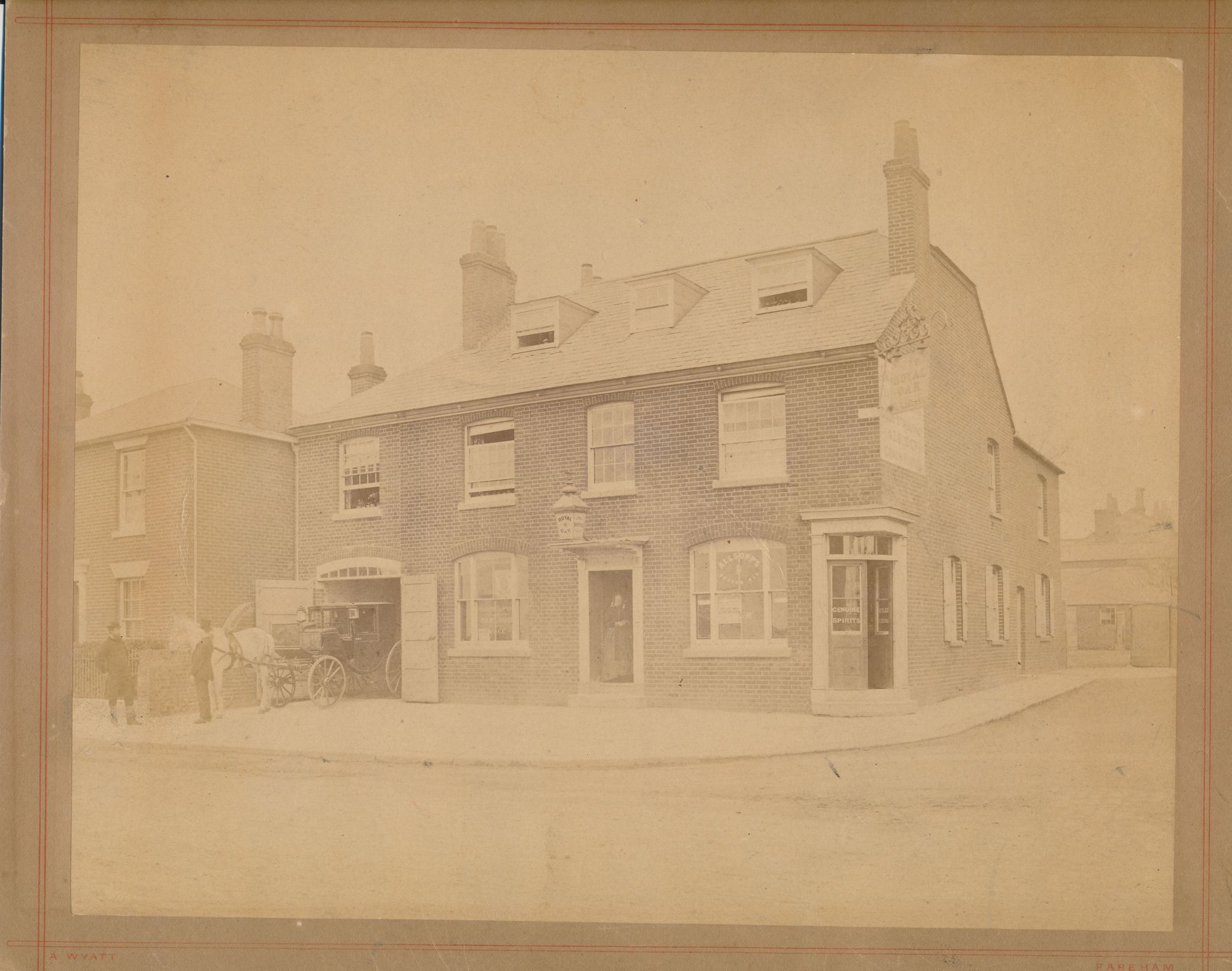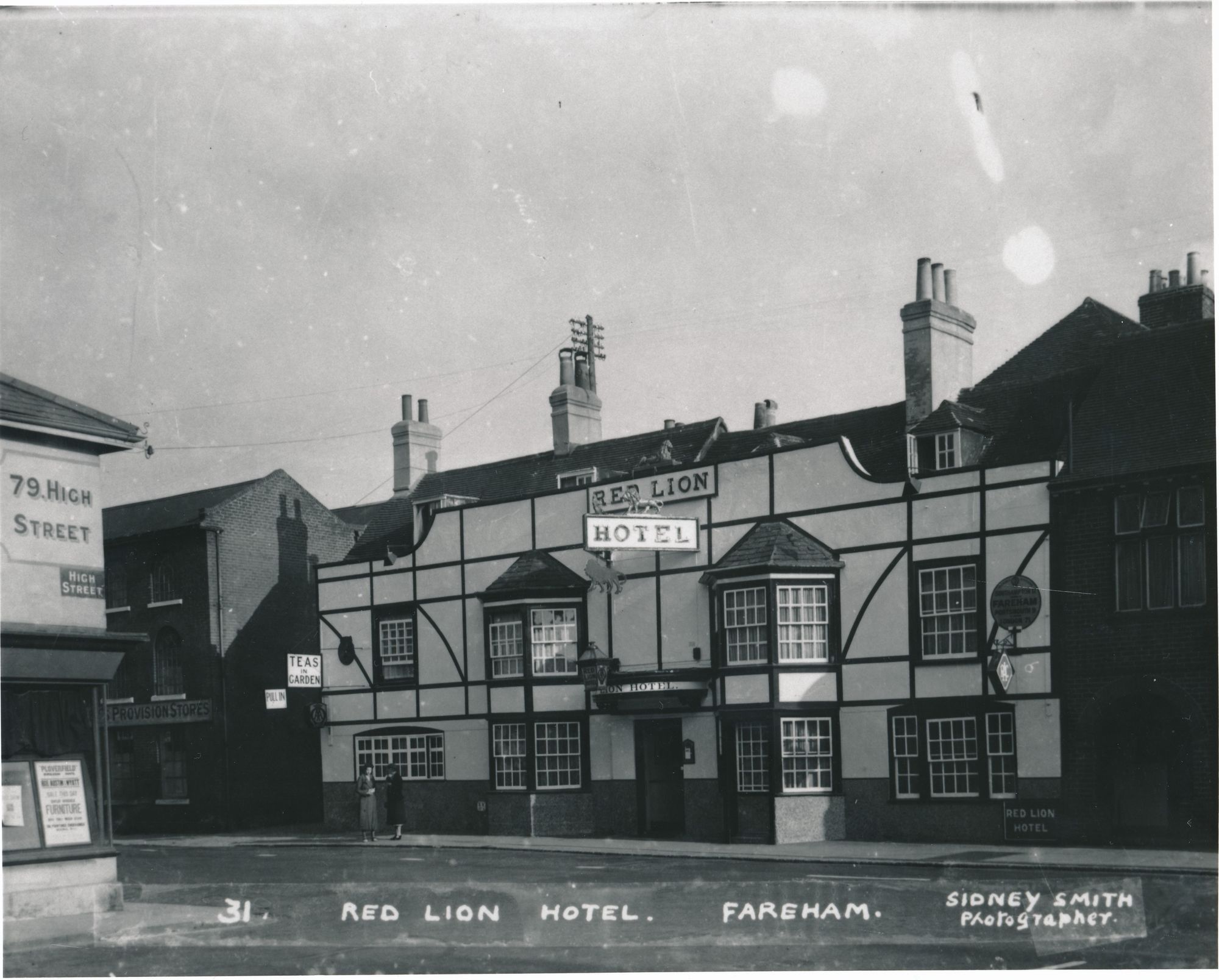An exhibition that tells the story of Fareham’s taverns and beer houses, music halls and theatres, picture palaces and fleapits. Relive over 200 years of locals letting their hair down, drowning their sorrows and losing themselves for a couple of hours to the magic of the silver screen.
Part 2- Pubs
“the heart of England”
Samuel Pepys description of the English pub
The inhabitants of Britain have been drinking ale since the Bronze Age but it was with the arrival of the Roman Empire on its shores in the 1st century BC, and the construction of the Roman road networks that the first inns, tabernae, began to appear. The original ale house evolved out of ordinary Anglo-Saxon homes which developed into meeting houses for the local community. Possibly the origin of the term ‘public house’ or ‘pub’.

A traveller in the early Middle Ages could obtain overnight accommodation in monasteries, but later a demand for hostelries grew with the popularity of pilgrimages and travel. A survey in 1577 of drinking establishment in England and Wales recorded 14,202 alehouses, 1,631 inns, and 329 taverns, representing one pub for every 187 people.
From the 17th century until the arrival of the steam train in the 1820’s the main form of public transport was the stagecoach which saw the proliferation of coaching inns across the country serving villages and small market towns such as Fareham.
At №1 West Street you can find the former coaching inn, the Red Lion. Founded in 1736, and still thriving today, it received passengers from the Old Turnpike and High St. journeying between Southampton and Winchester. Like many inns of the period it also provided a venue for the dispensing of social justice. At the Red lion this entailed the Poor Law commissioners deciding policy and finance for the Workhouse in Union St. whilst, naturally, enjoying a good lunch.
Gin Palaces, Alehouses and ‘Small Beer’
By 1740, the production of gin had increased to six times that of beer and because of its cheapness, it became popular with the poor, leading to the so-called Gin Craze. Over half of the 15,000 drinking establishments in London were gin shops. Brewers fought back by increasing the number of alehouses. The drunkenness and lawlessness created by gin was seen as leading to the ruination and degradation of the working classes. The Gin Act of 1751 forced distillers to sell only to licensed retailers and brought gin shops under the jurisdiction of local magistrates.
As the duties on gin remained low this had little effect on consumption and by the early 19th century the gin houses, or "Gin Palaces", had spread across the country and led to the passing of the Beer Act of 1830 introducing "beer houses". Any householder who paid rates could now apply to brew and sell beer or cider in his own home.
Because water was considered unsafe, and before tea and coffee were cheap enough for general consumption, tax would came off these products later in the decade, spent malt grains were reused to make “small beer”, a weak brew given to children or taken as part of breakfast.
Fareham, as a town with close connections to the navy, also saw a growth in the number of alehouses as the result of an Army and Navy policy that, instead of paying pensions to the widows of men killed in action, gave the women a licence to brew and sell ale, beer or cider, depending on location. By the end of the 19th century these initiatives combined resulted in more than 29 Ale or Beer Houses in central Fareham alone. Today Fareham has a single ‘Alehouse’ and that is a recent addition.

If you have enjoyed Culture on Call and you are able to make a donation, any support you can give will help us keep people connected.



